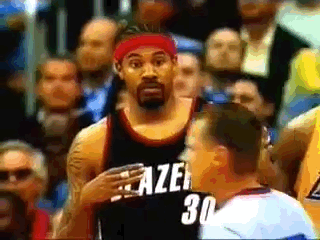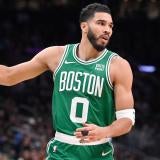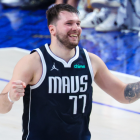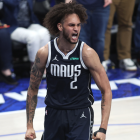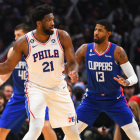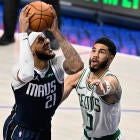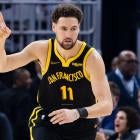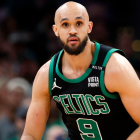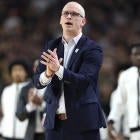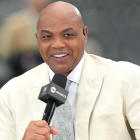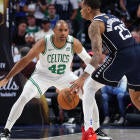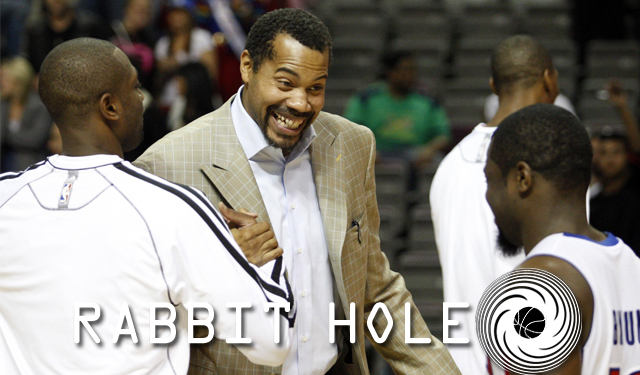
On Wednesday, one of the greatest personalities in NBA history turned 40 years old. It was Rasheed Wallace's birthday and it drew a nice little celebration on social media of funny pictures, .gifs, and videos of the entertaining man we affectionately refer to as Sheed. But the celebration of Rasheed Wallace goes beyond just 140 characters and the journey he can take you on the internet is essentially limitless.
Let's see just how far we can go as The Rabbit Hole comes back to this bandwidth for the 2014-15 season. It's Friday and you're looking to kill time anyway, right? Take a journey:
Rasheed Wallace: The Early Years
There was never anything ordinary about Rasheed Wallace's existence in the basketball world.
As a teenage kid at Simon Gratz High School in Philadelphia, Wallace was a high jumper both on the track and on the basketball court. He was the best and most talented basketball player in the country during his senior season of high school. That year, he won the USA Today High School Player of the Year, despite a scoring average of just 16 points to go with 15 rebounds and seven blocks. What's funny about those averages is they're fairly impressive until you find out he only played 19 minutes a game. In just that amount of time, they're extraordinary.
Here's a high school glimpse of eventual NBA'ers like Jason Kidd, Othella Harrington, Corliss Williamson, and Sheed (2:10) mark:
You can also watch a full game of Sheed in high school here. It's pretty entertaining to see him so young and spry, but there's also a funny exchange in the game between the two announcers:
"A sold out Geigel Complex."
"I haven't seen the Geigel this packed since the days of Donyell Marshall."
"Ah! Two years ago..."
You'll also hear the two announcers joke about the poor kid who had to do the jump ball with Wallace to start the game. These guys kind of steal the show from Sheed in a way, especially with some word play about 24 minutes into the video. Wallace gets a big two-handed dunk from a dump-off pass.
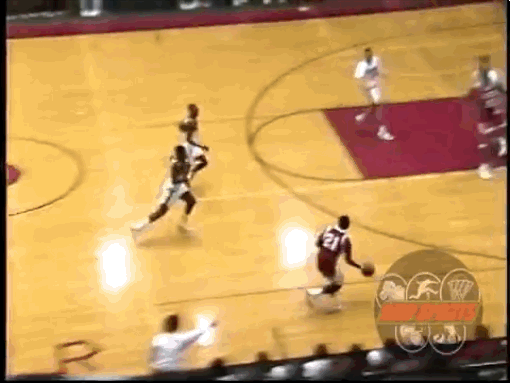
Then you have this exchange:
"He just took that over two guys and said, 'In your face, I'm slamming it home.'"
"ESP-IN your face..."
How do we hire these guys right now, 21 years later? There is so much excitement with an alley-oop later in which they remind us they haven't seen this kind of excitement and action at the Geigel since Donyell Marshall, which we found out was a whole two years prior to this game.
Sheed went on to the hallowed University of North Carolina, shining in two years with the Tar Heels. He was a valuable freshman under Dean Smith, followed by a sensational sophomore next to Jerry Stackhouse on a Tar Heels team that went to the Final Four before losing to Arkansas, the reigning champions and a team that nearly went back-to-back. They were highlight reels waiting to happen, putting a lot of fun into the UNC-Duke rivalry:
And it's a rivalry that Rasheed will never let die down either. Just ask former Duke Blue Devil and current Detroit Pistons player Kyle Singler:
Rasheed Wallace Becomes a Pro
Two seasons on Tobacco Road was enough for him and he was selected fourth by the Washington Bullets -- one spot behind teammate Jerry Stackhouse and one spot ahead of Kevin Garnett. Immediately on draft night, you had commentators questioning whether he was emotionally ready for the NBA. His talent and athleticism were loved, but you didn't know where his head was.
I don't think this is asking a lot, but if we're going to record the screen using a camera or our phones, we've got to have a universal rule as a society if we're going to make it as a species: put a shirt on. We can see the reflection of you in the TV screen. If we're not ripping the video from the TV to the laptop (and I know not everybody has that capability), then we have to have you put a shirt on. Although, looking at the dude's YouTube username that put this up and... let's just keep moving.
In Washington during the 1995-96 season, you had Sheed, Chris Webber, and Juwan Howard, along with the star of the Billy Crystal comedy "My Giant," Gheorghe Muresan.
There was a lot of fun going on in Washington surrounding this young core in his rookie season as the team won 39 games. You had an exciting, young frontcourt and the play of Robert Pack as the point guard. Calbert Cheaney was also still a thing back then and it looked like the Bullets were going to eventually take the league by storm. The talent was there; they just needed time to grow together.
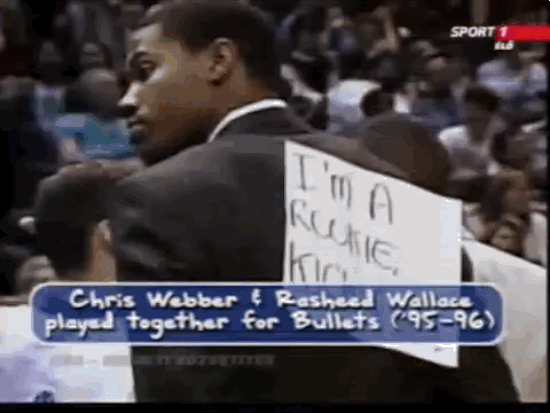
Sheed had a few moments on the Bullets, including the game-winning bucket in the Rookie All-Star Game that year. He grabbed an offensive rebound off a missed jumper by Damon Stoudamire. He hit the turnaround winner over Joe Smith before Joe Smith had his game-winning answer waved off because it came after the final buzzer.
There was only so much room for that crowded frontcourt though and the Bullets at the assets to trade in order to bring in their much-needed leader on the floor. They dealt Wallace following his rookie season with Mitchell Butler to the Portland Trail Blazers for Rod Strickland and Harvey Grant. And that's when the magic truly started to happen with Sheed.
Rasheed Wallace: A Star is Born
It was in Portland where Wallace's talents were able to blossom thanks to a mixture of opportunity, natural development, and a Blazers team that was so talented you had to become really good just to get on the court. His athleticism and length were freakish, almost a sideshow at a creepy carnival (I realize how redundant this is) to make you wonder why you even spent time to stop at the Bearded Lady.
He wasn't just athleticism. His talent was overwhelming, allowing him to be a weapon for the Blazers as a primary scoring source. He could hit you with either hand on the low block. He was capable of turning over either shoulder. He seemed to have glimpses of Kevin McHale and Elvin Hayes in his capabilities, executing an assassinous turnaround jumper with a high release point that couldn't be bothered.
Sheed slowly worked his way up the food chain on Portland. He was climbing the ladder of being their leading scorer, from fourth to third to second in his first three seasons with them. He consistently took the third or fourth most shots per game on the roster. In the lockout shortened season, Wallace and the Blazers finished 35-15 (a 57-win pace) and made the Western Conference finals before being swept by the Spurs. They had arrived but they weren't quite ready.
In the 1999-2000 season, they were ready but there were still questions about the headspace of this team. Sheed was the leading scorer and number one option. He had progressed to becoming a star quality player as Portland won 59 games and made it to the Western Conference finals for the second straight season. Sheed was a machine on a loaded squad.
However, what happened next was a big disappointment for the Blazers and their fans. They took the Lakers to a Game 7 in the WCF and they had a double-digit lead that was infamously wiped away by Shaquille O'Neal and Kobe Bryant. Sheed was a technical foul machine -- never one to hold his tongue when he disagreed with something. One of his most famous ejections came at the hands of Ron Garretson, who told a pleading Steve Smith that Sheed was trying to intimidate him and he'd have no more of it.
"Whack! Get out! Get away from me, Steve. Get away from me, Steve. He didn't say a word. Technical foul Wallace; he's gone. No, not right! I asked him three times to stop staring at me to try to intimidate me. I'm done; he's gone."
The Blazers would fall apart as a basketball culture following the WCF loss to the Lakers. They'd be swept by the Lakers in the first round the following two years. They couldn't get past the Dallas Mavericks in the first round of 2003. In that series, we got one of the two phrases that would eternally define Rasheed's game:
Things soured with Wallace and the Blazers in Portland, which helped lead to this good interview between Sheed and John Thompson and an even better reaction to it by Charles Barkley after.
Rasheed Wallace Finds a Home
After 45 games in the 2003-04 season, Sheed was finally traded away from Portland. He and Wesley Person were moved to the Atlanta Hawks in exchange for Shareef Abdur-Rahim, Theo Ratliff, and Dan Dickau. Wallace's time in Atlanta was magical. He only shot 33.3 percent from the field but averaged 20 points, six rebounds, and five blocks over the course of one game.
10 days after the Hawks acquired him, they moved him to the Detroit Pistons in a three-team deal with the Boston Celtics that involved a bunch of role players and two draft picks that would eventually become Josh Smith and Tony Allen. When Sheed got to Motor City, that's when his career became an overwhelming success. He was instantly accepted by the basketball culture because he fit in perfectly with what Joe Dumars was building in Detroit (that used to be a compliment).
He immediately turned the Pistons from a very good team to a title contender. And when they contended for the title against the Lakers in 2004, Sheed finally had his revenge on an organization that terrorized his Blazers' days. They beat the imploding Lakers in five games and Rasheed Wallace, as he stated he wanted to do in that interview with John Thompson, won a championship.
No, seriously:
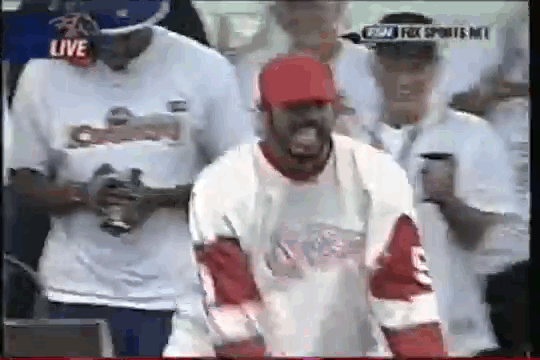
From there, the personality of Sheed was cherished and celebrated more than it was picked apart and denounced. He was a champion and he had been the missing piece on a championship team. That ring, which brought about Sheed getting his teammates wrestling style championship belts, legitimized every aspect of personality, good and bad. And once we accepted his personality, the material just kept coming in an age in which the internet was starting to become used for entertaining us 24/7.
He was a master trash talker to opponents and to his teammates. And when teammate Ben Wallace won another Defensive Player of the Year award, he had fun with it by making the word "felonious" the word of the day.
He had fun with fans:
He would also have fun with the refs (Warning: language):
He gave his teammates nicknames like nobody else:
He called himself "The Anchor of Comedy," which could not be more perfect. Also, everybody needs to stop ridiculing Kwame Brown and his career. Roscoe said he's cool so he's cool. Case closed.
Sheed would dance to get his teammates ready for the game:
He brought the holidays to the fans:
And he welcomed new teammates:
Wallace's time in Detroit would end and he'd go on to finish his career with the Celtics and then the Knicks. He had one more chance at a title in 2010 but the Celtics couldn't close it out in seven games. He took two years off in retirement before coming back for one more season with the Knicks. And in his own way, he was always the consummate professional:
And even in his later years, Sheed could still bring it on a basketball court. (Warning: there's a bit of language in this one but isn't there always with Sheed?)
Oh... and don't forget that the Ball Don't Lie
Ever.
Happy 40th, Roscoe.
